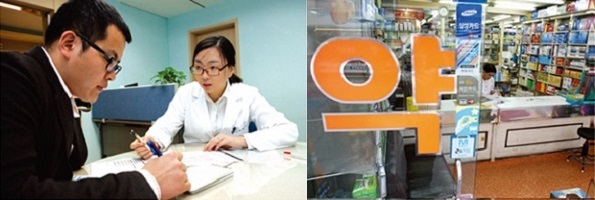Hospitals: Clinics & General Hospitals

There are two kinds of medical institutions in Korea. Primary health care organizations include neighborhood clinics, public health centers and small hospitals for common ailments such as the flu and digestion-related conditions. Specialized or university hospitals (general hospitals) are secondary care organizations that attend to more severe conditions or conduct precise medical examinations.
If, after visiting a clinic or public health center, you are referred to a larger hospital, you need to submit your medical records from the previous institution and the referral from your doctor to receive insurance benefits. However, you will automatically receive insurance benefits for emergencies (baby delivery, hemophilia, or other emergencies) or if you have to see a dentist or family doctor, or go to rehabilitation clinic.
Oriental Medicine Clinics
Korea’s unique traditional medicine is highly advanced. Almost every neighborhood has an Oriental medicine clinic where people can receive medicine or treatment such as acupuncture, moxibustion and cupping.
Public Health Centers
Public health centers are state-run public medical institutions. Vaccinations, treatment for chronic diseases, medical examinations, physical therapy, dental care and Oriental medicine are available here at a cost much less than at private medical institutions.
Pharmacies
Public health centers are state-run public medical institutions. Vaccinations, treatment for chronic diseases, medical examinations, physical therapy, dental care and Oriental medicine are available here at a cost much less than at private medical institutions.
In case of emergency :
When accidents or injury occur, or if you are seriously ill, call 119.
For the public health & welfare call center, dial 129 (Area code+129 on mobile phones).
For the emergency medical information center, dial 1339
